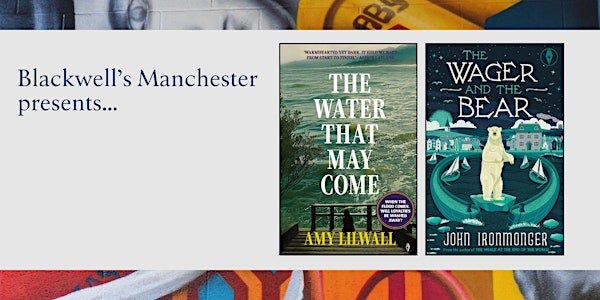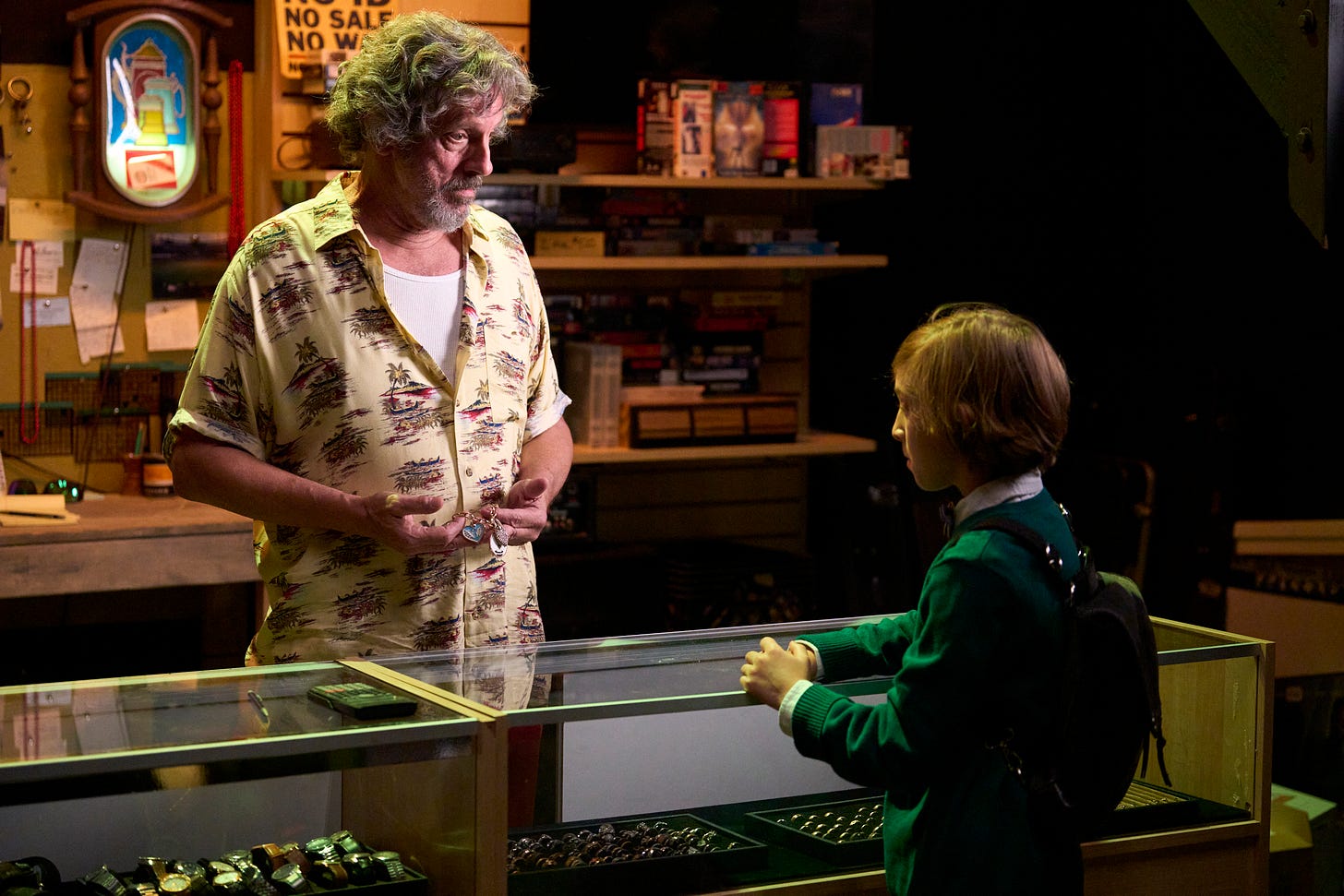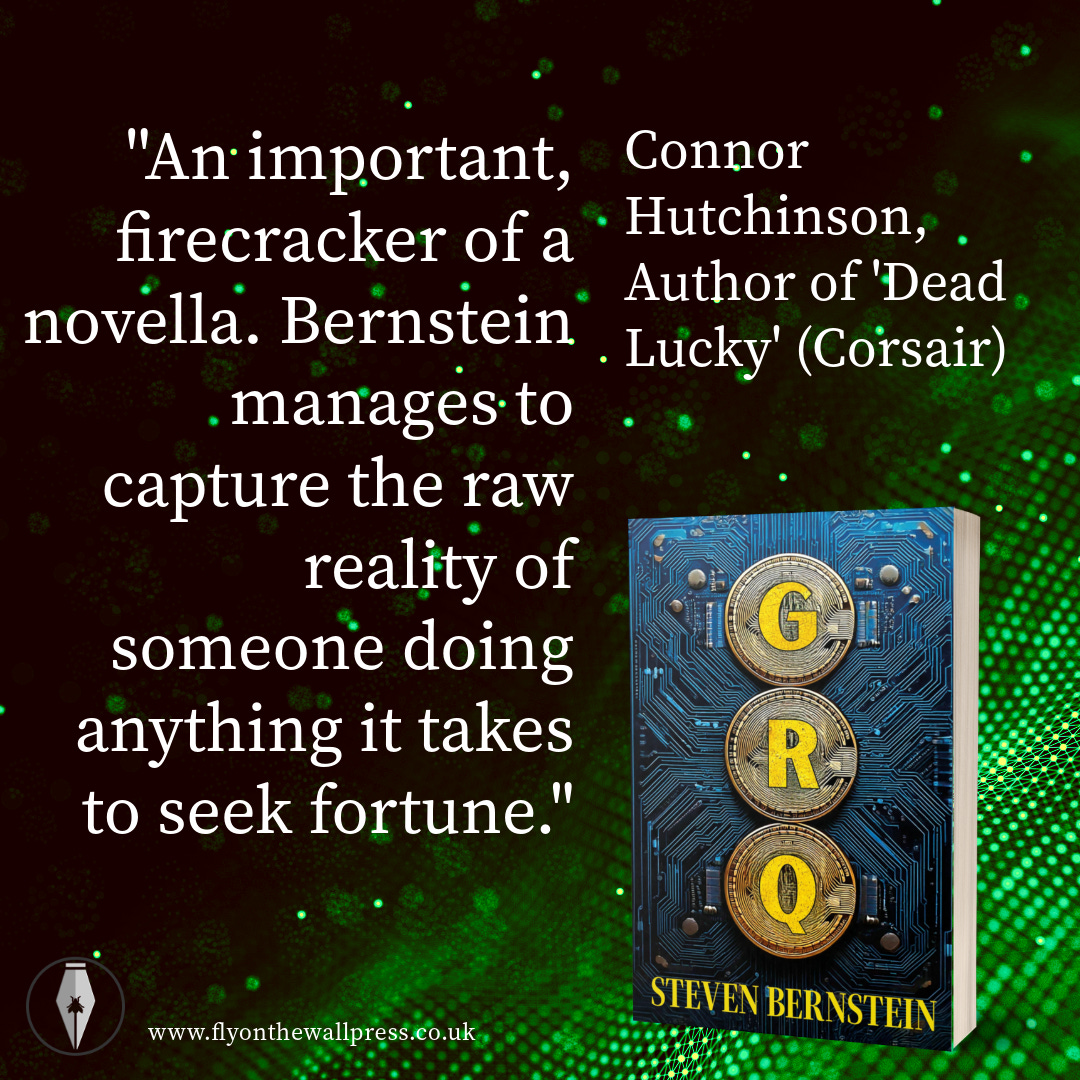Why We Love Characters Who Lie to Us
Academy Award-winning screenwriter Steven Bernstein reveals why lying makes characters more lovable and how desperation reveals our true selves
A very happy Friday Scribblers,
Really excited that Amy Lilwall will be launching the emotive clif-fi novel 'The Water That May Come' at Lark Books - Lincoln Book Festival on Friday, 3rd October at 7:00pm
But if that’s a bit far for you, never fear, because Amy will be visiting The Curious Cat Bookshop, Cheshire, on Sun 12th of Oct, Deep North Newcastle on Thursday 30th October and Blackwell’s Manchester on Thursday, November 6!
Today we have an INCREDIBLE interview with Hollywood screenwriter, director and debut author, Steven Bernstein! A bit about novella ‘GRQ’ (Get Rich Quick) and Steven before we begin…
In a Los Angeles rattled by an earthquake and on the brink of collapse, Marlon has twenty-four hours to change his fate. Drowning in debt, reeling from personal loss, and desperate to save his family, he’s seduced by a shadowy financial guru promising salvation. But as Marlon spirals deeper into a web of risk, secrets long buried begin to surface — and his final gamble might cost him everything.
'Author Steven Bernstein builds this sneaky domestic thriller with addictive, vignette-like chapters narrated by voices that alternate between self-justification and raw emotion...' - Best Thrillers.com
Steven Bernstein, ASC, DGA, WGA is an award-winning feature film director and screenwriter, shaping some of the most visually striking films of the past 40 years. His work on the Academy Award-winning film Monster and on Like Water for Chocolate has earned global recognition. He is a recipient of the American Film Institute Award, the Sloan Award (for writing and directing), the Cannes Golden Lion (for commercials), and is an ASC nominee for outstanding cinematography. He has worked on over 50 feature films.
Isabelle: GRQ unfolds over just one day, in short, filmic 'cuts' of chapters. As a director and cinematographer, how did your filmmaking background shape the way you approached writing the novella?
In film, we are acutely aware of our audience, more so than in novel writing. In film, we only have 2 hours to get to wherever we are aiming to get, so we want the audience to quickly identify with the characters who will drive the narrative and with the obstacles that those characters may have to overcome over the course of the film. This sounds formulaic, and many people working in motion pictures subscribe to formulas for a fundamental reason: because so much money is involved in film production, they want to mitigate their risk. If a formula works, they reason, why not use it again and again and again? And they do.
(Steven and actor and comedian Tom Walker (Jonathan Pie) on the set of GRQ)
Having witnessed this, I learned something... Not that we should use formulas. But that the connection between the audience (reader) and the character is essential.
My main character in GRQ, Marlon, makes a series of decisions that could make him unlikable. (Not that there is anything wrong with that. I have always loved Patricia Highsmith, and there is little lovable about Ripley. Or Humbert Humbert in Lolita, or Holden Caulfield in Catcher in the Rye.) But GRQ is a short work, and it gets to the essence of its themes very quickly, as we might in a film, so I felt a need for a quick empathic bridge for the reader.
Which is not to say that it justifies the character's behavior. Nor do I condemn it. Hitchcock taught generations of filmmakers that there is a universality to particular circumstances that will make audiences relate to characters in those circumstances (think the dangling feet on Mount Rushmore in North by Northwest), independent of our moral judgment.
I choose to make my characters sympathetic to the readers from the outset, so the reader will care about the characters' welfare. It gives the reader a way into the narrative. Certainly, as the story becomes more complicated, the reader must re-examine their connection to Marlon, but by then, it's too late, and that's the point. We want to condemn, but we are already complicit.
Isabelle: The book's narrator is an unreliable, morally ambiguous financial advisor — and still strangely likable. Why do you think readers are drawn to characters who lie to them?
In screenwriting, it's far more important when a character lies than when they tell the truth. We tell the truth about all sorts of unimportant things, but lie about the important things.
The thing about lying is how much it reveals about the interior life of the character; in a benign interpretation, the lie shows the world the character wishes they inhabited or the virtues they desire. The thinking goes, the lie is the attempt to realize the fantasy of those ambitions. More significantly, lying can also be a behavior of last resort, when scruples are abandoned in an attempt at self-rescue.
I am interested in these acts of desperation, both quiet and loud, as I think they are the crucible in which we discover our true natures.
Think of a person who commits a crime and lies to the police. Or to a spouse after an infidelity. Do we give them (or ourselves) dispensation? Maybe we should. Certainly, I think the reader will often feel that Marlin (the protagonist) deserves a break, and at other times, he deserves punishment. This fluid moral perspective is entirely intentional, as it's a book (at least in part) about morality and judgment.
This doesn't make it sound half as much fun as it is. Also, the book is about characters in a desperate situation. Every adult has been in a desperate situation at least once in their lives. That is part of the empathic bridge I was talking about earlier: shared perspective, shared fear, shared need, and then a shared perspective on right action. We've all been in a position where we feel encumbered by our requirements to act correctly. Like, telling the truth, for example.. But being obliged to tell the truth is a considerable burden, as it makes us vulnerable to the caprices of an uncaring world. (A person breaks into your home and asks if anyone else is in the house. Do you tell the truth?)
So, oddly, I think that Marlon's lies are one of the things that make him appealing. We see him as flawed and compulsive, but not evil by nature.
Isabelle: “There's a Marlon in all of us," has become a kind of obligatory tagline for GRQ. Who or what inspired Marlon's character, and do you recognise elements of him in yourself?
Well, that's a tough question because to say that there are bits of me in Marlon would not reflect well on me. But yes, there is a bit of Marlon in all of us; that in desperation, we are sometimes willing to abandon important, inconvenient things. Marlon has a capacity for rationalization, as we all do.
He believes, as many do, that we can sometimes temporarily set aside our moral responsibilities, and when the crisis we are dealing with is past, we can then return to our scrupulous Center. I don't think that, that's the way morality is meant to work. So, whereas I understand Marlon and perhaps forgive him, I am not him.
But if by the question you mean have I been frightened the way Marlon has been frightened, have I made bad decisions like Marlon has made bad decisions, have I ever represented things as better than they are from a desire to avoid conflict, well, yes. Guilty.
And if you mean have I had negotiations with people who are unscrupulous and have I been tempted to behave unscrupulously (because they have) for the greater good? Yes, absolutely. Hasn't everyone? What a very sheltered and controlled life a person must live to avoid finding themselves in impossible moral positions.
Isabelle: GRQ deals with crypto, financial collapse, and ambition — but it's also about grief, marriage, and the quiet pressures of masculinity. Was it always your intention to weave those threads together, or did that emerge naturally as you wrote?
I think both things are true. Like Joan Didion, I write to discover what I think. My first drafts of my plays, screenplays, and now my book don't have outlines, a plan, or even intentions. This isn't to say that I don't arrive at a structure in the final reckoning, but it's not where I begin.
As for those things you asked about, they weren't contemplated. Instead, as I began writing, the character's predispositions, backstory, and voice soon emerged, and from those elements there naturally arose things like the connection between masculinity and the need for financial success. Also, the relationship between that success, masculinity, and the dynamic of a marriage.
To start with specific intention or structure is a very dangerous thing, because the complexity of characters is something that has to be created by letting those characters find their own voices.
If, instead, you take the Shavian approach, and you know what the ideas are that you want the characters to address or represent, then they will serve those ideas, but they won't speak naturally; they won't be conflicted, they won't be distracted, or inclined to engage in tangential discourse.
Why is this important? Because that's what people do in ordinary life. They don't speak to serve narrative. It's the fact that characters don't wholly serve narrative that gives them authenticity.
Isabelle: You've worked with stars like John Malkovich, Helen Hunt, and Charlize Theron. What was different about directing Tom Walker (Jonathan Pie) in the film adaptation of GRQ?
Keep reading with a 7-day free trial
Subscribe to A Publisher with a Conscience: Fly on the Wall Press to keep reading this post and get 7 days of free access to the full post archives.






